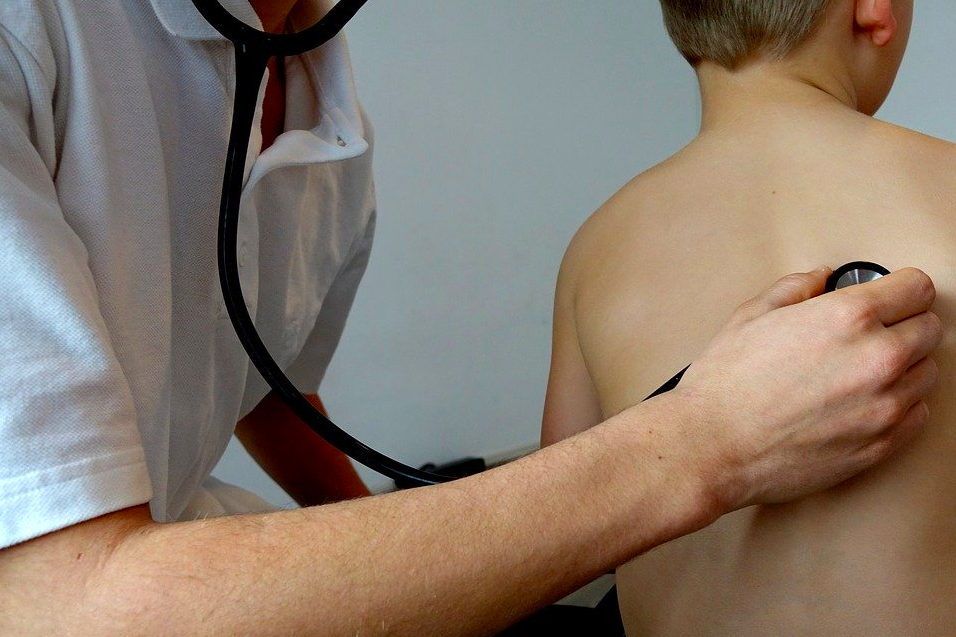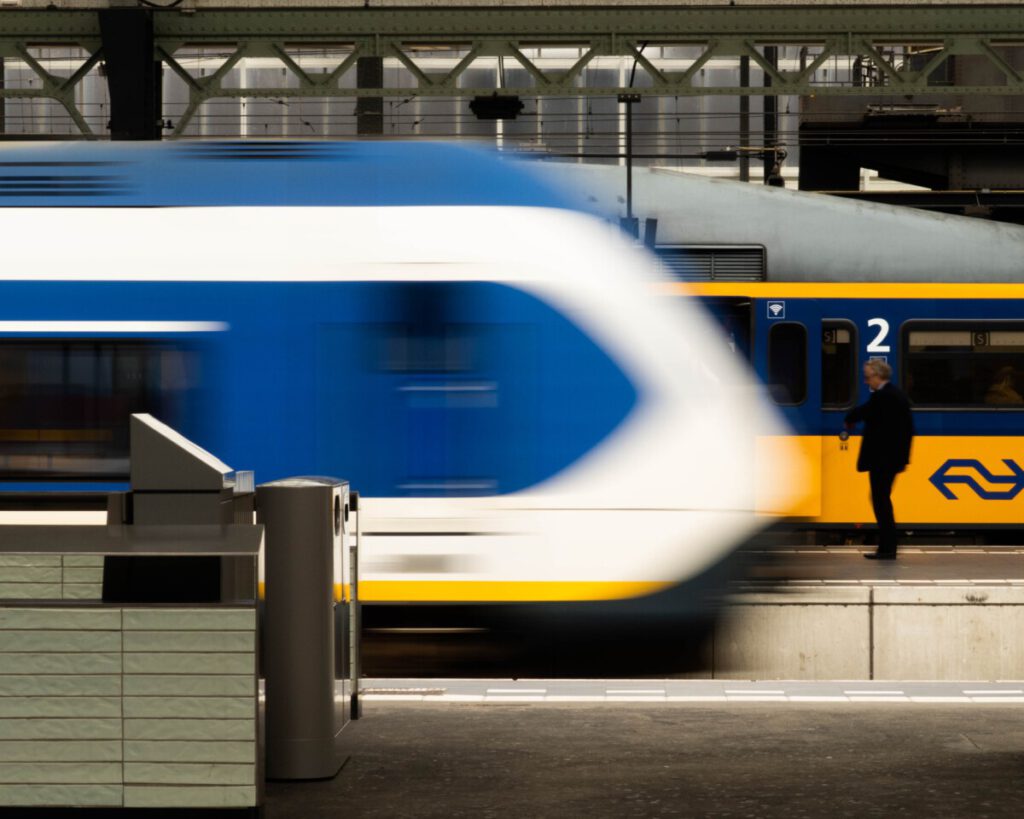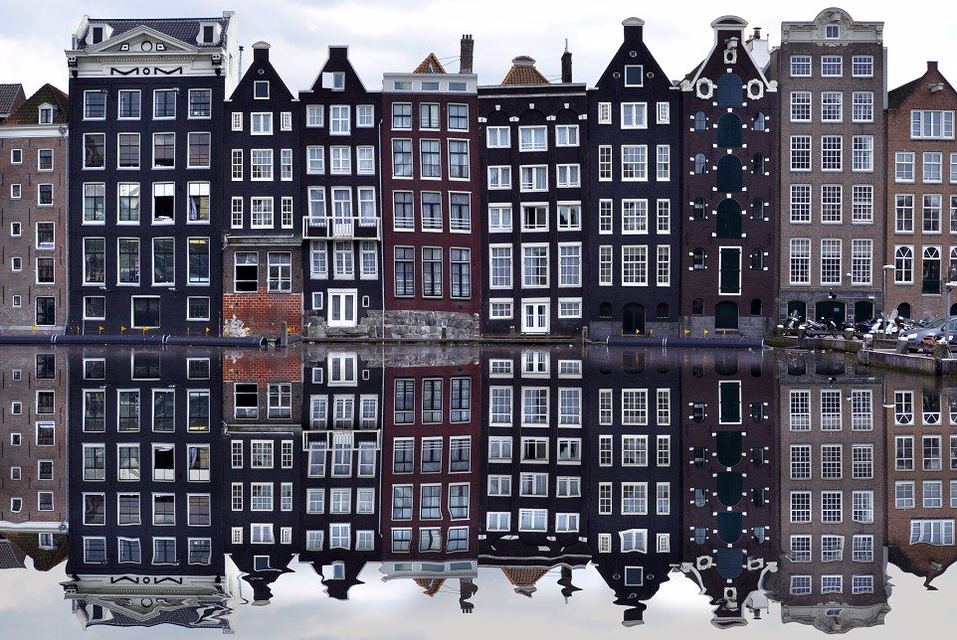So maybe you’re coming to the Netherlands permanently or thinking of taking the first step. Excellent choice! It’s stressful, it’s time-consuming, but it’s really damn exciting. Maybe you’re new to the whole Dutch thing and you want to know more. So here’s all you need to know before moving to the Netherlands.
We teamed up with Expats By Expats Relocation, the experts on relocating to the Netherlands (they’ve been expats themselves!) to bring you these 24 things you should know before coming to Holland.
Firstly, a little bit about Jo-Ann and why she started Expats By Expats Relocation. Jo-Ann is no stranger to living in a different country. She has been an expat for 14 years and has been living in various countries over the years, with her first ever move abroad being totally alone. She now lives abroad with her whole family.
She understands more than most about all the challenges of being an expat, the do’s and don’ts and the most important thing: how to have a smooth start. She started because she knew the stress and not knowing where to start.
My mission is to make sure my customers have an unstressful start and to feel at home
The perfect addition to this article. So, let’s get started:
You’ve got to sort your visa
You can skip this step if you are an EU National. If you’re an EU national, you won’t need a visa at all, yippee!
It’s not possible to live/work permanently in the Netherlands without a valid visa if you are a non-EU national. You must sort out a valid visa relevant to your stay prior to your move and for some of us, that can just be stressful and confusing.
If you’re still struggling when it comes to sorting out your visa, then there are people out there who are here to help. Expats By Expats Relocation can help you when it comes to providing advice about your visa (documents, application and permits), so your first steps to Dutch-life will be a lot less stressful — phew!
Find a place to call your home
So, first things first, you need to find a place to call your own. I’m going to get straight to the point: finding a place to rent in the Netherlands can be a bit like a game of cat and mouse. Be prepared to look not too far in advance, but not last minute either and be one of the first to call the letting agency when they put a place up for rent.
You then need to sort your utilities such as internet, TV, electricity etc… but we’ll go more into that later.

It might be a good idea to come to the Netherlands in advance before deciding on where to live in the Netherlands, take your time to look around and decide on a place to stay. As like most places, the cities are the most expensive and the further towards the centre you are, the higher the rent.
Luckily we, the good people at DutchReview, wrote these neighbourhood guides to the bigger and better Dutch cities such as these: Amsterdam, Rotterdam, Utrecht and The Hague.
Coming to the Netherlands as an international student is especially a challenge when it comes to finding housing. Rooms in Dutch student cities are sparse and it’s caused student housing problems.
The task of finding a job
This could and should be number one on the list when you plan on coming to the Netherlands, especially if you don’t have enough money to sustain yourself jobless.
Important note: Some rental agencies will not put you on the tenancy if you are not currently earning (some also have a certain amount you should be earning before you can rent with them). This is very important to check out first, it will save a lot of time!
So… job hunting in the Netherlands. Nobody likes to job hunt — so what is it like in the Netherlands? If your written and spoken English is excellent, you are heavily advantaged. If you have both excellent English AND Dutch — now we’re talking.
A degree is also preferable and needed with a lot of jobs in the Netherlands. Don’t fit these criteria? It’s going to be hard, but not impossible. A quick Google search should bring up a variety of good websites to job hunt such as Together Abroad, Undutchables, Indeed, Glassdoor etc.
Register with your local Gemeente
Gemeent-eh? What does this mean? Well, every area has a municipality where you have to register to that city — even Dutchies have to (and yes, you too EU nationals). This is usually possible in the town hall and it’s important to book an appointment well in advance as sometimes the earliest appointment is 2-3 weeks away, as I sadly learnt myself.
You must do this so you are legally registered and so you can receive your Citizen’s Service Number (BSN). Then you can do the essentials such as open a bank account (I’ll get onto that in a minute).
Please make sure you do this — I learnt the hard way, sitting in my empty apartment with no way of properly paying the rent, bills and the inability to buy essentials such as an internet connection.
This is because I had a 3-week wait for a registration appointment, so I couldn’t open a bank account etc! So, whatever you do, don’t do that, be prepared. If you’re stuck, Expats By Expats Relocation can help you with all of this too! They’ve been there and done that themselves, so they can help you with the process once you arrive.
Tip for when you’re coming to the Netherlands: Also something that was not immediately clear, was that for appointments one of the requirements is bringing a legalised birth certificate. I brought my birth certificate which is not the same thing.
It must be sent off to be stamped and approved legally. This is called an “Apostille.” This will then save you the hassle (and cost) of sending it back to your own country and waiting for them to send it back again. Not all countries require this, but many do.
We spoke with Jo-Ann from Expats By Expats Relocation and she gave a great piece of advice for you newbies:
Before you move to the Netherlands it’s very important that you contact a relocation office so that they can advise you which steps you have to take before moving to the Netherlands. They will also advise you which papers you need when you will go to the gemeente. Getting yourself registered in the Netherlands is the first step you will take so you want to make sure you are well prepared.
Open a bank account
You’ll be pleased to know that opening a bank account is as easy as it is at home. Just turn up at your local bank (or make an appointment), bring your important details such as your passport and BSN (Citizen Service Number) given by your Gemeente and they will do it all for you. Some popular banks in the Netherlands include ING, Rabobank and ABN Amro — but there are plenty of other smaller banks in the Netherlands
If you travel often, it may be best to open an online bank too. If you are after an online bank provider there are few good ones such as bunq and N26.
Sort your health insurance in the Netherlands
By law, everybody who resides in the Netherlands should at least have basic healthcare insurance (around €100 per month). This must be taken out within 4 months of registering (if non-EU) and within 1 year (EU citizen, BUT only if you are not earning, once you earn, you pay straight away also). Trust me, once you get your head around it all, you won’t have to fret.
Expats By Expats Relocation can help you when it comes to healthcare needs (recommendations for clinics, doctors, specialists, etc). Healthcare is super important and they know their stuff. Yet again Jo-Ann provided a good piece of advice:
Our health insurance system can be complex if you don’t know anything about it. We at
Expats by Expats Relocation are certified to give you all the information you need and to advise
you on which insurance fits you the best. Choosing the right health insurance is very personal and important because it’s based on your needs and health.
Start learning Dutch!
Once you arrive in the Netherlands you realise that many people speak almost-flawless English (as modest as the Dutch are, they say they don’t, but they do). Because of this, it’s really easy to get into the trap of not speaking Dutch. Some would argue “well, there is no need.” And some would say “well you are in the Netherlands so you should speak Dutch.”
In theory, yes, you should. There is absolutely no harm in doing so. You miss out on really embracing the country that you live in. It also opens your horizons for better job opportunities. I wish I made more of an effort from day one. So get downloading those free language apps (such as Duolingo), buy those children’s books and start talking terrible Dutch.
To get started, don’t forget to watch this:
Know that there’s more to the Netherlands than just Amsterdam
(We say as we have a picture of Amsterdam as our cover picture). But no, there really is more to the Netherlands than just Amsterdam. Amsterdam is beautiful and a must-see if you’re coming to the country, however, there are plenty of equally as nice places to visit with the similar Dutch architecture and canals that we all love.
For example Delft, Utrecht and Leiden are all beautiful canal cities. In fact, there are too many to choose from. We even have a couple of guides to beautiful towns in the Netherlands that aren’t Amsterdam.
In short: DON’T just go to Amsterdam, hear us out — the Netherlands is much more than that. 😉
Register with a GP (Huisarts)

When you arrive in the Netherlands and have sorted your health insurance, then you should register with your local Huisarts. To do this you should go to the reception desk of your local practice and take your ID, health insurance details and BSN number with you. Here you will be assigned a doctor.
If you’re after something specific Expats By Expats Relocation can help you. They can offer you recommendations for clinics, doctors, specialists and more. This way you can be sure that you’ve got the health care that you need — your health comes first after all.
Find a new school for your child(ren)
Finding a school for your child(ren) is the next step once you get to the Netherlands. You need to decide whether you want to send your child to a Dutch school or an international school in the Netherlands.
International school’s are renowned for costing a lot of money, but sometimes this can be paid for or subsidised by your employer, so it’s worth asking. The older your child is, the more difficult it will be for them in a Dutch school if they don’t speak Dutch, so some important decisions need to be made before and once you arrive.
If you have no experience with the Dutch schooling system, then you may find it a struggle to understand what to do next. Expats By Expats Relocation understands as they were expats themselves. Take it from someone who knows! Jo-Ann for Expats By Expats Relocation says:
Every parent wants to find the perfect school for their child/children. In the Netherlands, there are many choices. The Netherlands has international, British and Dutch schools and every school has a different system they work with. Because you have so many choices it’s important that you choose a school that has a system that fits your child/children. I myself have 3 children that all have attended international schools and currently I still have 1 child attending an international school and 2 children at a Dutch school. It is all based on what system matches your child the best.
Get an OV chipcard!

Finding your way around the Netherlands is really damn easy. Everywhere is accessible and you can easily hop on and off different forms of transportation. Buying your own personalised OV Chipcard means that taking public transportation is quicker and easier and also means that you can get subscriptions for cheaper transport.
For example, with NS Flex you pay only €5 per month and you get 40% off trains all weekend and off-peak in the weekday. Bargain!
Buy yourself a bicycle: A MUST!
Dutch life = bike life. If you’re moving to the Netherlands then you’re definitely going to have to invest in a new bicycle (and it’s really not a big investment either). Commuting around the country by bicycle is ingrained in Dutch culture and you won’t have to have any worries about cycling alongside the road and risking your life either.
Almost every inch of the country has some sort of bike lane. Head to Marktplaats, a Kringloopwinkel or a bicycle shop — they’re everywhere!
Consider enrolling at a Dutch university
The Netherlands is known for its great universities and they’re affordable if you are from the EU. In the Netherlands, you’ll look to pay around €2,000 per year a BIG change from countries such as the UK, where you are looking at fees in excess of £9,000 per year (around 10,200+ euros).
Many courses are also taught in English so it means that you can easily pick a course for you and not have to worry about your lagging Dutch skills. 😉
Learn to enjoy the Dutch weather

The Netherlands isn’t known for its beautiful weather and once you move to the Netherlands, you’ll have to learn that every sort of weather conditions possible can happen all within at 24 hour period. So if you’re heading out don’t forget your sunglasses, coat, sun top, umbrella, jumper and some suncream… no, seriously.
Accept that you’re probably going to put on weight
When I first moved to the Netherlands, I thought hey, there are fewer ready-meals here and so much fish and veg, this is going to do me wonders. How wrong was I.
Pretty much every single Dutch snack is deep fried in some way and most of them are incredibly addictive. Think bitterballen and stroopwafels! Kiss goodbye to that six-pack and say hello to that six-pack of waffles.
Finding a place to live is really difficult
Yeah, I know I’ve already mentioned this once before, but I really need to mention it again — it honestly needs a whole section by itself. Finding a place in the Netherlands is so difficult — but it’s not impossible!
Expats By Expats Relocation (being expats themselves) understand that finding a place in the Netherlands is no mean feat. They’ll be able to assist you when it comes to that dreaded house search. They’ll be able to help with things like arranging home viewing appointments, help with temp housing options and help with any maintenance queries with your rented apartment.
Trust me, this needed to be put in here again because finding a house is something that we all dread the most when we move to the Netherlands.
The Dutch have the best English skills outside of native English-speaking countries
Terrified that your Dutch just isn’t going to cut it? No worries! Many people in the Netherlands speak English fluently and even if they don’t, they usually know enough to understand what you’re saying.
Many websites also have information in English, customer services in companies almost always speak English and Google translate really has advanced over the years (just take a photo of a piece of Dutch text and it will translate it all for you) — magic.
Sort your utilities
When you’ve just moved into your new rented or bought a place, you will have to sort out all of your utilities. This includes things like electricity, gas, TV, Internet etc. “But who the hell am I going to go with? Who even are the utility companies anyway?” (Something which I asked my rental agency who were totally unhelpful and I ended up with the most expensive company for the electricity and gas). Utilities are stressful, man.
This may seem daunting in another country, but with Expats by Expats Relocation they will be able to help you set up all of your utilities quickly and easily. So, you’ll be up and running with things in no time!
Having a car in the Netherlands is an expensive luxury
If you’re thinking of bringing or buying a car in the Netherlands and you’re on a tight budget, you may have to think again. The Netherlands is a small country with a crazy population growth and with all of those wonderful bicycle lanes, the government really doesn’t want everyone coming in with their cars and polluting the cities.
This is why the cost of buying a car is great, the fuel is the most expensive you can find in Europe and you pay a lot of car tax. So, if you really want or need a car, bear this in mind. Fiets, niet auto!
NL might not have any hills, but it does have beaches

You’ve arrived in the Netherlands you want a nice walk — where the hell have all the hills gone? The Netherlands is one of the flattest countries there is, with most of it sitting well below sea level.
For some people, this just really isn’t appealing. Especially when you have beautiful rolling hills and mountains in neighbouring countries such as Germany and Switzerland. However, don’t write off the country off just yet. Although it’s not particularly known for it — the Netherlands has beautiful beaches all along the West and North of the country.
That and the tulips, the farmland and the windmills — what more could you need?
Dutch directness really is a thing
There is a classic Dutch stereotype that suggests that Dutch people speak their mind. Initially, you think “hey, don’t we all in some way?”, but no, the Dutch really do speak their minds. Always. Every single damn time.
When you first move to the Netherlands you need to grow about 8 million layers of skin and try and not to take anything too personally — they’re just looking out for you. 😉
If you’re bringing your pet to the Netherlands, prepare well in advance
Got a pup or kitty at home and want to bring them over to the Netherlands? Then you’ll have to prepare in advance — especially if you’re moving from far away lands. But how? If you’re thinking of taking your beloved pet to the Netherlands then you’re going to need a pet passport as a starter.
If you’re unsure of the whole process in getting your furry friend to join you in the Netherlands, then Expats For Expats can help you, along with helping you with your pet care.
Get informed on the law and your basic rights
When you first move to another country, you need to do a bit of research into what your rights are when it comes to working, maternity, wages, allowances, taxes and more. Knowing this can help prevent issues such as exploitation (from wages, working hours etc) and also can benefit you (you’ll be able to claim allowances and receive help etc).
Expats By Expats Relocation can make that much easier, by providing you with the information and the support you need so you will have no hidden surprises once you arrive in the country.
Look for help and guides if you need it:
There’s plenty of information about moving to the Netherlands out there and you don’t need to struggle out there alone (hey, you’re here reading DutchReview after all). Expats for Expats are just one of those companies that really can help you when it comes to moving to the Netherlands.
Jo-Ann from Expats By Expats Relocation knows all too well about the stresses (yet excitements) of moving to another country. Having someone around who really does understand what it’s like and has done it all before really helps. Also, you can rest assured that the advice will really help. They provide many different services, including help on immigration (visas etc), settling in, finding a home, education, leaving the Netherlands, partner support, about children and pets and much more.
As they say, “Trust us, we’ve actually been there.”
Good luck with your move to the Netherlands! Don’t worry, it’s going to be awesome!
How do you feel about coming to the Netherlands? Any tips for other when it comes to moving to Holland? Share your experience with us in the comments!
Feature Image: na4ev/Pixabay.
Editor’s Note: This article was originally published in April 2019 and was fully updated in December 2020 for your reading pleasure.



Very informative article.
Brilliant info thank you. Looking forward to my planning.
Berni